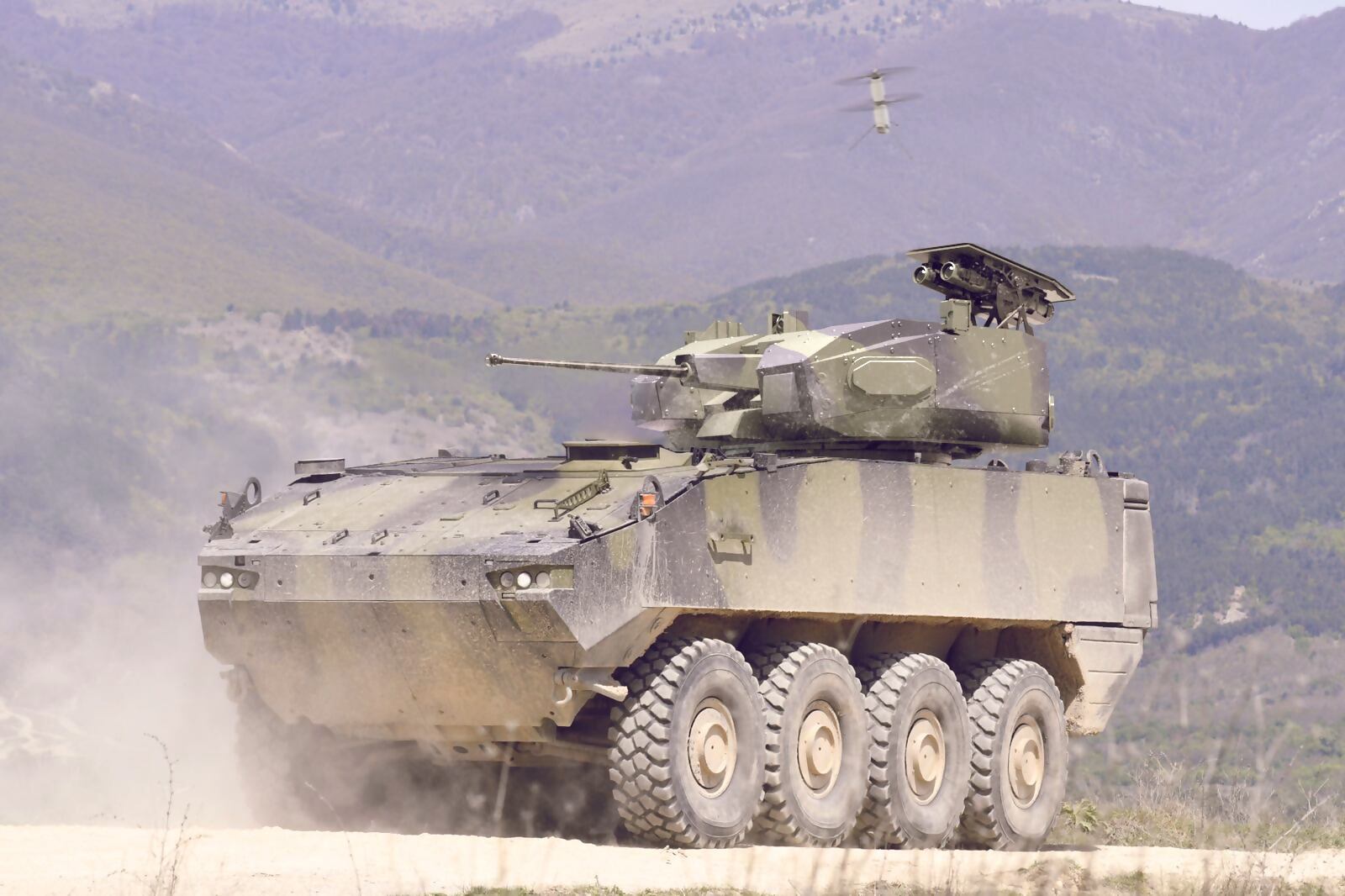JERUSALEM — Israeli defense contractor Rafael has equipped its Trophy active protection system with a top-attack defense capability, closing a vulnerability against drones and missiles that has plagued even heavily armored vehicles, according to the vendor.
Rafael officials unveiled the upgrade in a briefing here last week held ahead of the AUSA arms exhibition in Washington next week, where the company will exhibit its wares.
At the briefing marketing executive Ehud Nir showed a video of the system undergoing live-fire testing, with a countermeasure destroying a drone hurtling toward a vehicle’s turret from high above.
The company declined to specify how the upgrade works or when the capability was first introduced on Trophy, saying only the system had undergone numerous development cycles since first being fielded more than ten years ago.
The top-attack capability is available by way of a software upgrade to existing Trophy installations, according to Rafael.
RELATED

Trophy is a defensive system equipped with so-called soft defense measures, such as electronic warfare, and an active defense system that includes physical interceptors destroying incoming projectiles before impact with a vehicle’s body.
It consists of a number of sensors and a radar with four antenna panels mounted around the vehicle. The interception process engages only if the system detects that a threat will damage the vehicle.
The system is in use on the Israeli Merkava Mark 3 and 4 tanks and the Israeli Namer armored personnel carrier. Trophy is also found on American Abrams tanks and has been tested on Stryker APCs and Bradley Fighting Vehicles. In February 2021 Rafael signed a deal with Germany to equip the country’s Leopard 2 tanks.
Rafael claims a 90% effectiveness rate for Trophy.
Editors note: This story was updated on Oct. 8 to correct an editing error in a reference to Trophy maker Rafael.
Tzally Greenberg is the Israel correspondent for Defense News. He has experience reporting on economic affairs as well as defense and cyber companies.








